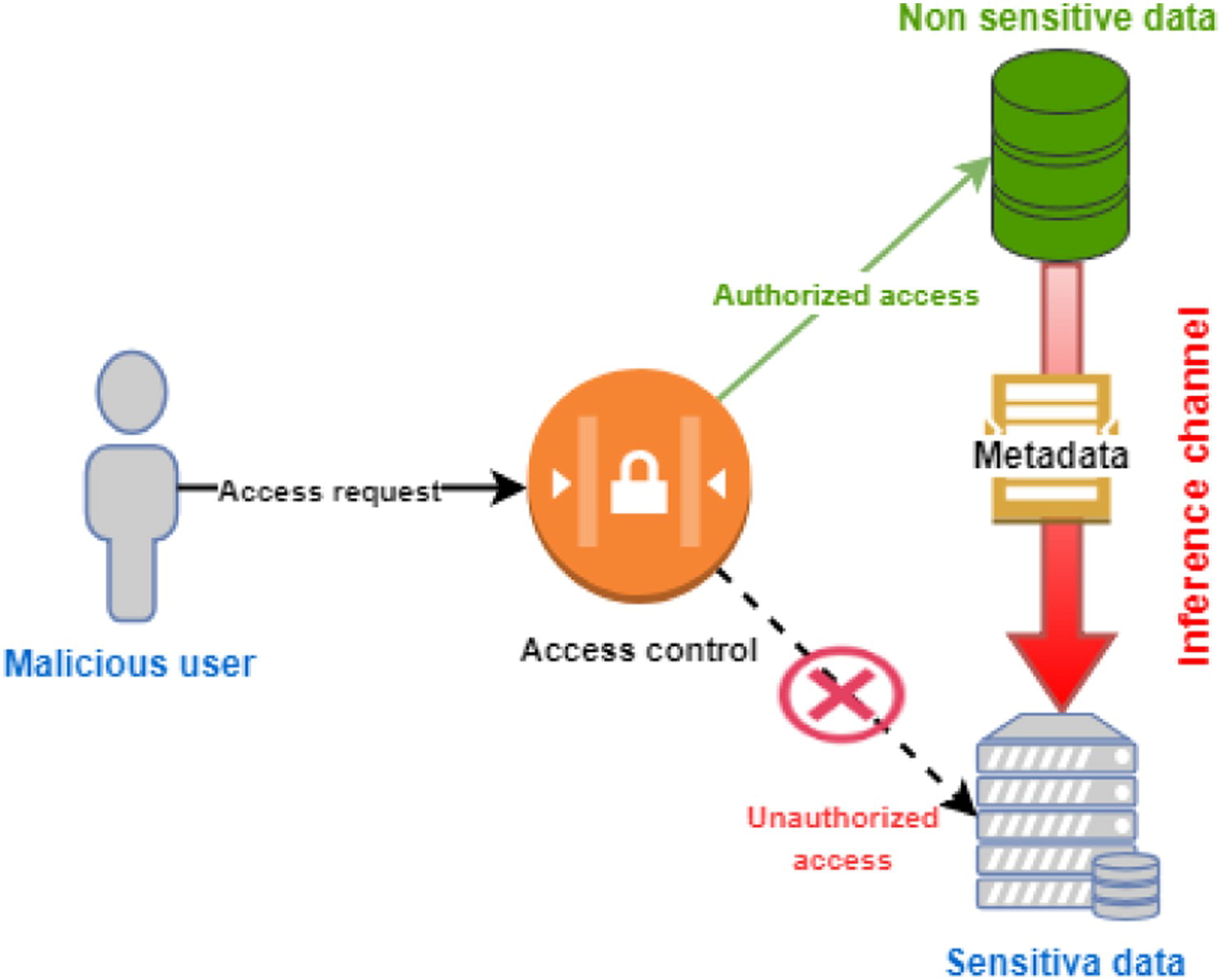Difference between revisions of "Template:Article of the week"
Shawndouglas (talk | contribs) (Updated article of the week text) |
Shawndouglas (talk | contribs) (Updated article of the week text.) |
||
| Line 1: | Line 1: | ||
<div style="float: left; margin: 0.5em 0.9em 0.4em 0em;">[[File: | <div style="float: left; margin: 0.5em 0.9em 0.4em 0em;">[[File:Fig5 Jebali JofInfoTelec2020 5-1.jpg|240px]]</div> | ||
'''"[[Journal: | '''"[[Journal:Secure data outsourcing in presence of the inference problem: Issues and directions|Secure data outsourcing in presence of the inference problem: Issues and directions]]"''' | ||
With the emergence of the [[cloud computing]] paradigms, secure data outsourcing—moving some or most data to a third-party provider of secure data management services—has become one of the crucial challenges of modern computing. Data owners place their data among cloud service providers (CSPs) in order to increase flexibility, optimize storage, enhance data manipulation, and decrease processing time. Nevertheless, from a [[Cybersecurity|security]] point of view, access control proves to be a major concern in this situation seeing that the security policy of the data owner must be preserved when data is moved to the cloud. The lack of a comprehensive and systematic review on this topic in the available literature motivated us to review this research problem. Here, we discuss current and emerging research on privacy and confidentiality concerns in cloud-based data outsourcing and pinpoint potential issues that are still unresolved. ('''[[Journal:Secure data outsourcing in presence of the inference problem: Issues and directions|Full article...]]''')<br /> | |||
<br /> | <br /> | ||
''Recently featured'': | ''Recently featured'': | ||
{{flowlist | | {{flowlist | | ||
* [[Journal:Digital transformation risk management in forensic science laboratories|Digital transformation risk management in forensic science laboratories]] | |||
* [[Journal:Named data networking for genomics data management and integrated workflows|Named data networking for genomics data management and integrated workflows]] | * [[Journal:Named data networking for genomics data management and integrated workflows|Named data networking for genomics data management and integrated workflows]] | ||
* [[Journal:Implement an international interoperable PHR by FHIR: A Taiwan innovative application|Implement an international interoperable PHR by FHIR: A Taiwan innovative application]] | * [[Journal:Implement an international interoperable PHR by FHIR: A Taiwan innovative application|Implement an international interoperable PHR by FHIR: A Taiwan innovative application]] | ||
}} | }} | ||
Revision as of 17:39, 25 January 2022
"Secure data outsourcing in presence of the inference problem: Issues and directions"
With the emergence of the cloud computing paradigms, secure data outsourcing—moving some or most data to a third-party provider of secure data management services—has become one of the crucial challenges of modern computing. Data owners place their data among cloud service providers (CSPs) in order to increase flexibility, optimize storage, enhance data manipulation, and decrease processing time. Nevertheless, from a security point of view, access control proves to be a major concern in this situation seeing that the security policy of the data owner must be preserved when data is moved to the cloud. The lack of a comprehensive and systematic review on this topic in the available literature motivated us to review this research problem. Here, we discuss current and emerging research on privacy and confidentiality concerns in cloud-based data outsourcing and pinpoint potential issues that are still unresolved. (Full article...)
Recently featured:










